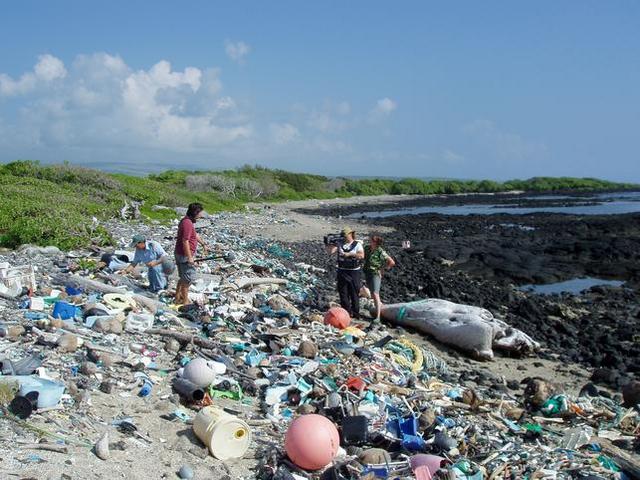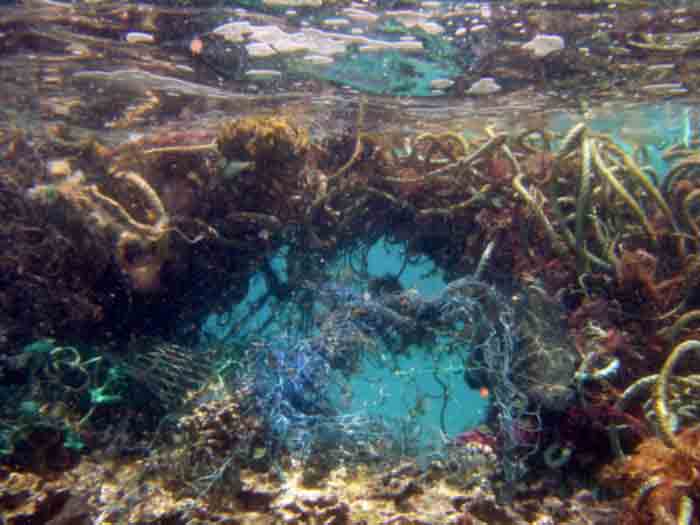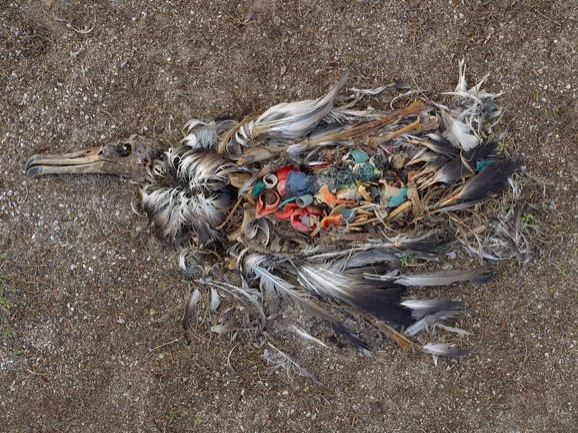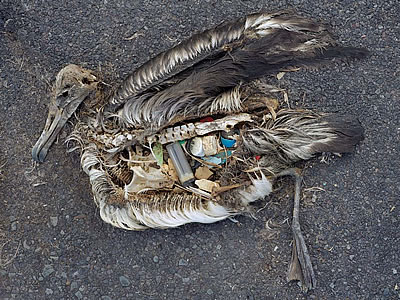
Plastics Researchers studying the effects of female hormones on cancer were perplexed when their controls tested positive for the female hormone estrogen. Eventually, after some months of sleuthing, they discovered that the plastic centrifuge tubes they were using were leaching out molecules that mimicked estrogen. Further research identified the offending molecules as alkylphenol polyethoxylates (chemicals found in many detergents, pesticides, and personal-care products), which can break down into nonylphenol and other chemicals that mimic estrogens when they encounter bacteria in animals' bodies, in the environment, or in sewage treatment plants. Another group of researchers found an estrogen mimic, bisphenol-A, leaching from polycarbonate, an entirely different kind of plastic. Polycarbonate is used in the manufacture of lab flasks, as well as many consumer products, including jugs and bottles used for drinking water. Bisphenol A is also found in high concentrations in the plastic linings used for canned foods. The use of plastic containers for baby foods is of grave concern. Certain plastics in common use produce estrogen mimics that disrupt the action of normal hormones, causing feminization. Unfortunately these leach into ground water supplies. If ingested, these molecules can cause breast and prostrate cancers, premature puberty among young females, as well as decreased sperm counts among males. Estrogen mimics from plastics also provoke insulin resistance which can lead to diabetes. 

Remnants of plastic containers end up in the world's oceans where they are beaten by waves and the surf into smaller particles that float, often getting captured by ocean gyres. Other bits end up on beaches. Ingestion of such plastics kills many marine animals. Sea birds, including petrels and albatrosses, think floating plastic is food and they feed it to their chicks, killing them. Marine turtles mistake floating plastic bags for their natural food jellyfish, and eat it, becoming constipated and die. 

Bottom Line: Plastic products are dangerous and hazardous to your health as well as the lives of many other animals. Best not to drink out of plastic bottles or eat canned food from cans lined with plastic. Do not microwave food in plastic containers -- use glass, it's inert. Here are some links: http://www.cdnn.info/news/article/a071104.html http://en.wikipedia.org/wiki/Great_Pacific_Garbage_Patch http://www.greenpeace.org/international/campaigns/oceans/pollution/trash-vortex# http://www.mindfully.org/Plastic/Ocean/Sea-Plastic-LN-PG5oct05.htm http://www.mindfully.org/Plastic/Ocean/Moore-Trashed-PacificNov03.htm http://www.bestlifeonline.com/cms/publish/travel-leisure/Our_oceans_are_turning_into_plastic_are_we.shtml References Colburn, T., D. Dumanoski and J. P. Myers. 1996. Our stolen future. Dutton. Links: Moore, C. 2003. Trashed. Across the Pacific Ocean, Plastics, Plastics, Everywhere. Natural History v.112 Ocean Garbage Patches Plastic Trash |